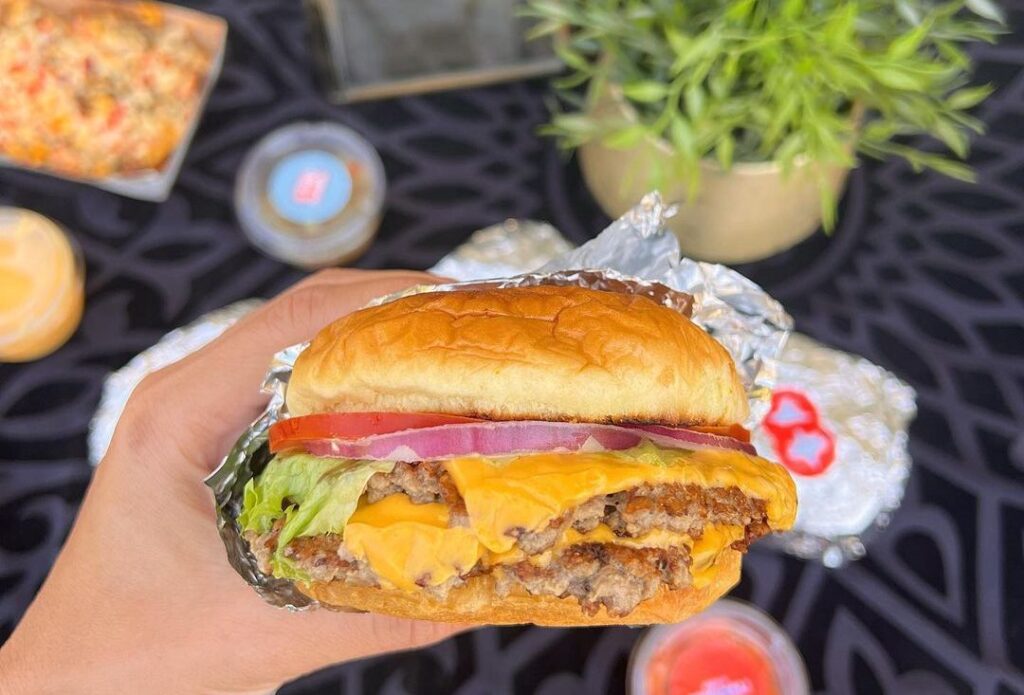Supply chains, transport, and logistics were impacted globally as well as in Egypt when the pandemic hit. While sectors of the F&B industry took it hard, others actually thrived, and as online delivery apps flourished, other formats struggled. However, where businesses are concerned, that timeframe faced challenges in terms of profitability, cash flow, and productivity.
As Egypt saw the budding stages of digitization emerge pre-COVID-19, the pandemic still pushed the transition to accelerate, with companies and businesses adapting their models to include a digital aspect, to stay afloat.
“The pandemic was a huge interruption,” CEO of Gourmet Food Solutions, Amgad Sultan tells Business Monthly. “But during that time, we grew four times in delivery sales. With the lockdown, that aspect grew.” The growth was attributed to Gourmet’s adaptability to launch its e-commerce platform.
Following the pandemic, some businesses propped up, others re-adapted, some came back stronger, and others shuttered.
Holy Buns, the brainchild of Hussayn Hilal and Mohamed Abbas, began with a small menu and the intention of making a high-quality product born and bred in Egypt. Currently, the business has three branches, with food trucks opening in the North Coast over the summer. This isn’t the young entrepreneur’s first business. Back in 2012, Hussayn launched FooolTank, a cloud kitchen catering to the breakfast needs of Cairo’s workforce.
Hilal cites that since 2012, the playing field and how an owner can break into the market has significantly changed. As the ecosystem progressed over the years with more Egyptians taking risks in terms of pursuing entrepreneurial endeavors, the wealth of knowledge has increased. In addition, with the advent of the internet, and its accelerated development over the years, access to information has become significantly easier.
“It’s not about renting out, it’s about the initial investment,” Hilal, the managing partner and co-founder of burger joint Holy Buns tells Business Monthly.
Setting up a store today requires a big initial investment. Whereas, the initial investment for renting a truck is significantly lower, explains Hilal. The truck comes with other perks wherein, if it’s owned, it’s an asset. Moreover, a truck has the flexibility of movement. If it doesn’t work in one spot, it can always relocate.

Photo credit: @them_holybun
While food carts have been part and parcel of Egyptian culture, food trucks on the other hand are a relatively new emergence within the North African country, and in the region in general. The food truck trend started in Egypt around 2017 – 2018, according to the market research platform, Trend Type. It has seen continued growth since the pandemic due to the low initial investment and the low operation cost in comparison to restaurants, according to HPG Consulting. Since its introduction to Egypt, the food truck business model has morphed to serving everything from burgers and fries, to coffee like Brown Nose, to tex-mex and a variety of other cuisines and options.
Egypt’s food market has a revenue of $182.7 billion, with an expected annual growth of 7.32%, as per Statista.
Digital, all the way
Gourmet Food Solutions (part of Gourmet Stores), which now operates over 16 stores, started small with “a freezer that had two products, frozen tenderloins, a bag of shrimps, a part-time delivery person, and a mobile phone,” Sultan says.
During the pandemic, companies globally accelerated their digitization plans to respond to customer needs by three years in terms of how fast the shift happened, according to a 2020 survey by Global Management Consulting Firm, McKinsey & Company.
A decade ago, social media platforms were still at the budding stages of their development, Hilal adds. Products could be marketed for free but reached a smaller audience. Today, another big player in the game is the improvement done on these platforms, which includes the algorithm. With the algorithm, ads are tailored and targeted and paid.
Sultan shares the same sentiments. “The landscape is changing and competition is changing. I think one needs to be on a wait-and-observe mode.”

He added: “With innovation, you need to consider two things; food is fashion, so if you’re an authority in food fashion, you get to innovate and part of your innovation can be out-of-the-box. And the other thing is you stay in touch with your consumer base.”
Foodtech
One of the pillars of a business’s success is driving down cost, a factor afforded by the accelerated advancement of tech, which was brought on by the pandemic.
The advent of technology, and its fast progression in the past few years, has granted businesses tools for easier accessibility and exposure according to a 2022 article published by leading software development company, Arnia Software. Regardless of the industry, the effect of technological transformations has impacted the way in which businesses operate and run.
A case in point is InstaShop, which saw its orders double in number at the start of the pandemic, according to an article published in April 2020 on Arabian Business. InstaShop, which is present in several markets including Egypt and the United Arab Emirates, connects users with their local markets for daily delivery needs. Another example is Talabet, a food-delivery app, whose growth rate reached 80% during the pandemic, according to an article published by Zawya in March 2021.
Foodtech is a rapidly growing sector in Egypt, with startups in the region having registered a $896 million in funding by 2021, according to an article published by MENA-region accelerator Wamda. The sector extends to everything from cloud kitchens to food delivery platforms. Even as the pandemic came to an end, the interest and demand for third-party food platforms remained strong.







